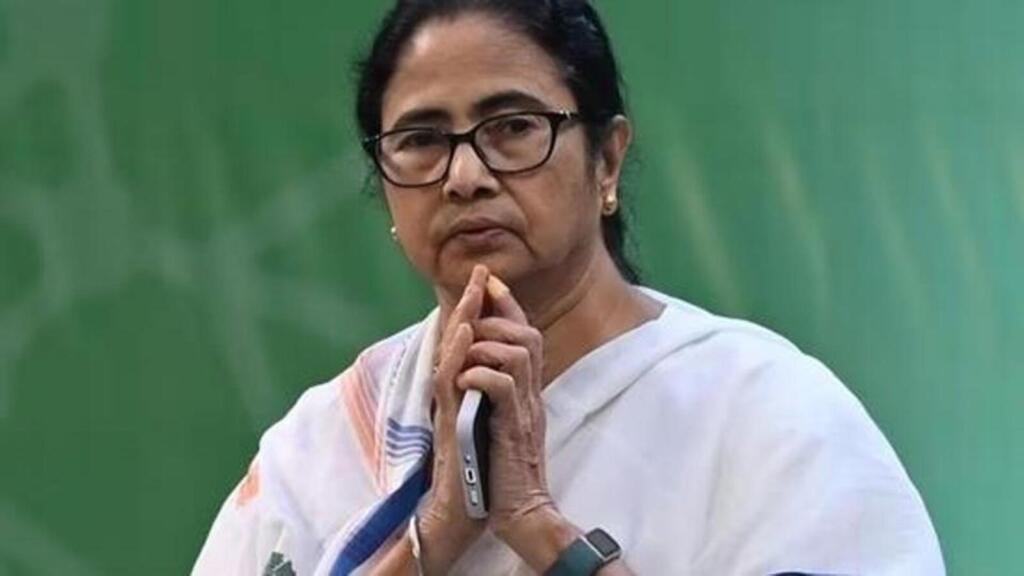In a significant development, the Calcutta High Court has taken decisive action against West Bengal Chief Minister Mamta Banerjee and three other individuals. The court has issued a temporary restraining order, effectively stopping them from making any false or damaging statements about Governor CV Ananda Bose. This decision came after Governor Bose filed a defamation case against Mamta and other TMC leaders, marking a new chapter in the state’s political landscape.
The Trigger for Legal Action
The legal battle began when Mamta made a controversial comment suggesting women felt unsafe entering Raj Bhavan due to molestation allegations against the Governor. This remark, which quickly gained public attention, prompted Governor Bose to seek legal protection from the High Court. Mamta’s statement, given her position as Chief Minister, carried significant weight and potentially harmful implications for the Governor’s reputation.
Mamta’s Restrictions and Court’s Reasoning
Justice Krishna Rao, who presided over the case, emphasized that Governor Bose holds a constitutional position of great importance. The court noted that the Governor, due to the nature of his role, cannot easily defend himself against personal attacks, especially those made on social media platforms. While acknowledging the fundamental right to freedom of speech, the judge clarified that this right has its limits and cannot be used as a tool to harm someone’s reputation indiscriminately.
The court expressed concern that without this restraining order, Mamta and others might continue making harmful statements about the Governor. As a result, they are now banned from making such comments until August 14, 2024, when the case will be reviewed again. This temporary measure aims to protect the Governor’s reputation while the legal proceedings unfold.
Mamta’s Defense and Future Proceedings
Mamta’s legal team presented a robust defense, arguing that her statements were made in the public interest. They claimed that the Raj Bhavan incident is already in the public domain and therefore cannot be considered defamatory. In a bold move, the legal team also mentioned that Mamta would provide concrete proof to support her comments, including names of women who had expressed concerns about visiting Raj Bhavan.
What’s Next for Mamta?
This restraining order puts Mamta in a precarious position. As a prominent political figure known for her outspoken nature, she often addresses various issues publicly. However, this court order significantly limits what she can say about the Governor, at least until the next hearing. Now, Mamta must navigate her political responsibilities while minding the legal restrictions placed upon her.
Mamta’s Political Future and Public Perception
The court’s decision may have far-reaching implications for how people view Mamta. Her supporters might interpret this as an attempt to silence her voice and restrict her political freedom. On the other hand, her critics and neutral observers may view it as a necessary step to protect the dignity and reputation of a constitutional authority. How Mamta navigates this complex situation could significantly affect her political standing in the coming months.
This legal battle between Mamta and the Governor highlights the delicate balance between free speech and protection against defamation in Indian politics. It raises important questions about the limits of political discourse and the responsibility of public figures when making statements about constitutional authorities. The case may establish a precedent for how authorities handle similar situations in the future, not just in West Bengal but across India.
Mamta’s Careful Path Forward
As the case progresses, all eyes will be on Mamta. She must now carefully consider her words about the Governor while still effectively leading her state and maintaining her political influence. The Chief Minister will need to find a way to address important issues and criticize policies if necessary, without crossing the line set by the court order.
Mamta’s Challenging Road Ahead
As August 14, 2024, approaches, the political atmosphere in West Bengal is likely to remain tense. The next hearing will be crucial in determining how this legal battle unfolds and what it means for Mamta’s political career. Until then, Mamta must tread carefully, balancing her role as Chief Minister with the legal restrictions placed upon her. This case serves as a reminder of the complex interplay between law, politics, and public discourse in India’s vibrant democracy.
ALSO READ: Only Eight Individuals Applied for Citizenship under CAA in Assam. How and Why?
